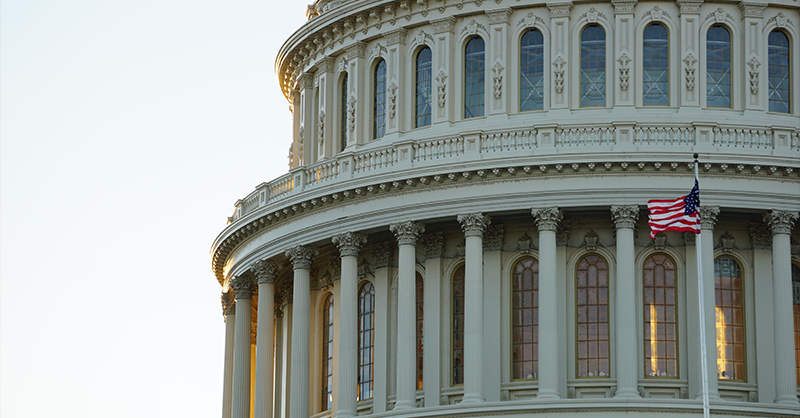US House leadership shuffle lowers temperature on antitrust focus
28 January 2023 00:50 by Chris May

Big Tech companies and other targets of a recent wave of bipartisan US congressional antitrust scrutiny caught a break with today's announcement that the previous ranking Republican on the House antitrust subcommittee, Ken Buck, has been passed over for the chairmanship in favor of Kentucky Republican Thomas Massie.
Judiciary Committee Chairman Jim Jordan’s announcement today appointing Massie as head of the Subcommittee on the Administrative State, Regulatory Reform, and Antitrust signals a shift away from a focus on policing concentrated corporate power and toward greater effort to rein in the federal government itself.
Following the passage of modest antitrust reform legislation in the Senate last year, Buck, a Republican from Colorado, heralded what he called the “beginning of a new era of antitrust reform and proof-of-concept for a bipartisan reform coalition of conservatives and progressives.”
In addition to elevating a critic of federal antitrust legislation and increased funding for enforcers over Buck, who has supported both, Jordan has pushed for the creation of a special subcommittee to investigate the “weaponization” of the federal government.
According to Republican Federal Trade Commissioner Christine Wilson, Jordan has contacted her office seeking staff assistance on “oversight hearings”.
Massie has previously opposed increased appropriations for the FTC and Department of Justice, going so far as to question the need for companies to receive government approval for any mergers.
In response to being snubbed by Republican leadership, Buck has committed to pushing for the re-introduction of major federal antitrust legislation he previously championed. His replacement, by contrast, has been both a critic of that same legislation as well as a landmark investigation of competition in digital markets undertaken by outgoing Democratic committee chair David Cicilline.
Buck recently highlighted his positive working relationships with Cicilline and Democratic Senator Amy Klobuchar of Minnesota, chair of the Senate’s antitrust subcommittee, the same day US President Joe Biden attempted to rally Congress with an op-ed in the Wall Street Journal calling for aggressive interventions in the tech sector through broad-based data privacy, content moderation and antitrust legislation.
Massie, on the other hand, described Klobuchar’s legislation curbing platform self-preferencing as “counterproductive,” calling instead for strengthening the exclusivity of private intellectual property as a way “to give innovator Davids a fighting chance to compete and displace the Goliaths.”
In the areas where Massie agrees that lack of competition is a problem, he disagrees with the most popular solutions. Drawing on his experience raising cattle, Massie recently tweeted out criticism of a “quad-opoly of corporate middlemen” he accused of driving up meat prices in stores and squeezing farmers.
“We all agree: the solution is to promote competition,” he said.
Rather than bringing antitrust lawsuits against major meatpackers and subsidies for smaller players, however, Massie’s prescription is to “roll back crippling regulations on the little guys.”
It’s unlikely such approaches will be well-received in the Senate, which recently displayed broadly bipartisan interest in new legislation and potential antitrust enforcement actions in a hearing probing anticompetitive conduct in the ticketing industry.
Fragmented congressional approaches to antitrust policy and potential investigations into enforcement agencies may provide tech giants and other targets of antitrust scrutiny with a temporary reprieve from facing new federal competition laws.
Meanwhile, other jurisdictions are moving forward with the implementation of sweeping new regimes policing competition in digital markets, and global firms will have to decide whether their own businesses will also end up fragmented while the US competition law plays catch-up.
Related Articles
No results found
